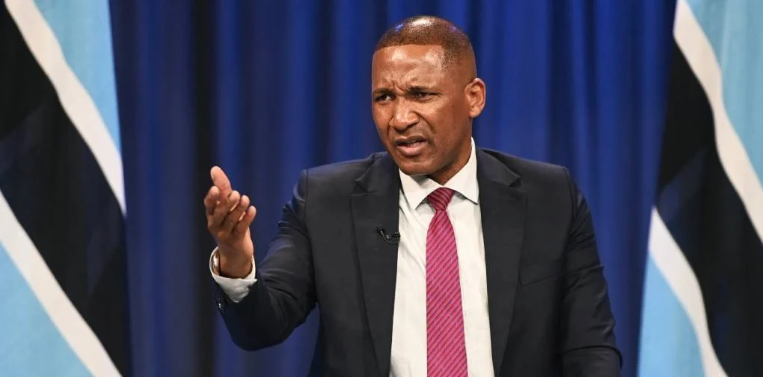Botswana recently saw a seismic shift in its political landscape with Duma Boko sworn in as the country’s sixth president on November 1, 2024. This historic moment ended nearly six decades of rule by the Botswana Democratic Party (BDP), which had governed the country since its independence from Britain in 1966. Boko, the leader of the Umbrella for Democratic Change (UDC), achieved victory by forming alliances with other opposition groups to oust the incumbent president Mokgweetsi Masisi
The 2024 election results were a landmark in Botswana’s democracy, often cited as one of Africa’s strongest. The BDP’s fall from power was attributed to several factors, including internal divisions, voter discontent over economic challenges, and public pressure for more inclusive governance. Observers noted that while Botswana has made strides economically, the country still faces high unemployment, particularly among youth, and an uneven distribution of wealth from its diamond resources, a sector that has fueled much of its economy. Many voters were also concerned with issues of poverty, crime, and drug abuse, pressing concerns that Boko committed to addressing under his leadership
Boko’s victory also signifies a fresh approach to the government’s relationship with the diamond industry, specifically with De Beers, the multinational corporation that has historically partnered with Botswana. Boko has expressed intentions to reevaluate and potentially renegotiate diamond-related agreements to ensure that they more broadly benefit the public. His administration has indicated a commitment to maximizing Botswana’s diamond wealth in a way that impacts citizens’ livelihoods positively and sustainably
Another pressing issue facing Boko is gender inequality in government representation. Currently, women hold only a few positions within Botswana’s federal cabinet and parliament. Gender advocates are calling on Boko to prioritize inclusivity and ensure greater representation for women. This appeal aligns with the broader hopes that his administration will bring about a more progressive and inclusive government
The smooth transfer of power from the BDP to the UDC, according to international observers, is an exemplary model for other nations in Africa. Boko highlighted this transition as a triumph for democracy, stating that Botswana’s experience showcases how political power can change hands peacefully and constructively. Observers hope that his administration’s approach will continue to uphold democratic principles while focusing on resolving socio-economic issues that have persisted for years


4 Comments
Your blog is a shining example of excellence in content creation. I’m continually impressed by the depth of your knowledge and the clarity of your writing. Thank you for all that you do.
you are in reality a just right webmaster The site loading velocity is incredible It seems that you are doing any unique trick In addition The contents are masterwork you have performed a wonderful task on this topic
Hi my family member I want to say that this post is awesome nice written and come with approximately all significant infos I would like to peer extra posts like this
Your blog is a true hidden gem on the internet. Your thoughtful analysis and engaging writing style set you apart from the crowd. Keep up the excellent work!